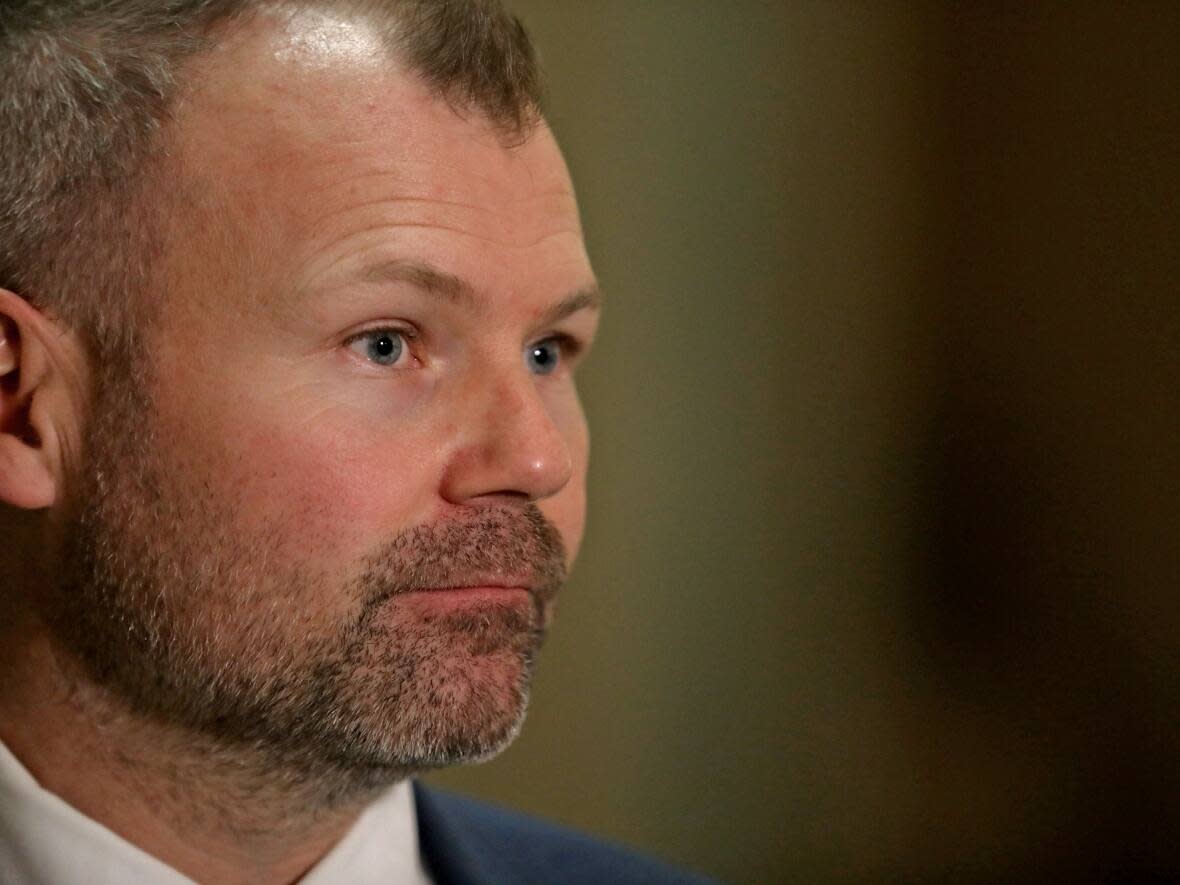Sask. creates new regulations for independent schools in wake of abuse allegations

The Saskatchewan government is creating new regulations it says will strengthen oversight of independent schools in the province, after a class-action lawsuit launched last year alleged students suffered years of physical, emotional, and sexual abuse at one such school.
On Thursday, Education Minister Dustin Duncan announced the government had amended two pieces of legislation — The Registered Independent Schools Regulations and The Education Funding Regulations — that govern the operation of independent schools, which are any owned by a person or an organization other than a public authority or the government.
Last summer, government oversight of independent schools was drawn into the spotlight after more than 30 former students alleged they suffered abuse at Saskatoon's Legacy Christian Academy, which was previously called Christian Centre Academy.
The students filed a $25-million class-action lawsuit alleging abuse by staff and leadership at the independent school and adjacent church.
In February, a former coach at the school was charged with sexual assault and sexual exploitation of a minor.
Last August, Duncan appointed administrators to oversee three independent schools, including Legacy Christian Academy.
At the time, all three schools employed someone named in lawsuit filed by the former students.
Duncan said this week that following discussions with the appointed administrators, the government decided to pursue specific changes to implement "good governance" at all schools.
That includes ensuring all independent schools have an administrative policy handbook, he said.
The Ministry of Education said that would include an attendance policy, an extracurricular policy and a policy for parent complaints and grievances.
Separation from parent organizations
Another change will require that starting with the 2024-25 school year, independent schools "must be registered as a separate non-profit organization from any parent organization," such as a church, the Education Ministry said.
While the other regulatory changes take effect in the fall of 2023, the ministry wanted to give schools more time to make the changes to register as a non-profit separate from any parent organization, Duncan said.
He said there were no complaints about financial reporting under the parent-organization model, but that system wasn't clear.
"Anything that was requested by the ministry would essentially be the parent organization's financial reports," he said.
"In the event that it was a church or other organization, how do you distinguish what is the parent organization's financials and what are the school's financials?"
Under another regulatory change, a principal will not be allowed to be a member of the school's board of directors.
That's because if a complaint is lodged against a principal, the complainant may be discouraged if the principal is also on the board of the school, said Duncan.
Any school that doesn't follow the new regulations will be put on probation until it reaches compliance, and would have its certificate revoked for any "serious violations," he said.
Schools are also required to have at least one teacher for every 40 students. Duncan said if that ratio was lowered, some schools would have issues operating.
The schools must also ensure that teachers are licensed and that staff listings on the school's website match the role the staff member is licensed for, the education minister said.
NDP wants to know what administrators learned
Opposition NDP education critic Matt Love said the public should know what the appointed administrators learned while overseeing the independent schools.
"What did they discover in terms of the quality of education? Any financial irregularities that led this government to making these changes now?" he asked Thursday.
With taxpayer dollars flowing into independent schools, the Saskatchewan Party government should be open about any issues uncovered, he said.
"I'd like to see any recommendations and reports created by the three administrators put in place of qualified independent schools to be made public so that we can see what led to these changes.
"These changes are long overdue."

Four days after Duncan announced the appointment of administrators last August, Grace Christian School in Saskatoon had its certificate revoked by the ministry for failing to co-operate with the new requirements.
Duncan said the administrator stayed on to help place students into other schools.
The administrator at Regent Christian Academy indicated his work was completed after a period of time. The administrator at Legacy Christian Academy was replaced after he received a position with the Ministry of Education.
That school still has an administrator overseeing operations, Duncan said.
But Love accused the province of providing inadequate oversight of operations in the schools, noting the people named in the class-action lawsuit were in positions of authority as principals and athletic directors.
"Lack of regulation, we believe, is one of the causes for the allegations — a lack of oversight, a lack of professional teachers in the classroom, a lack of financial reporting, a lack of accountability in these schools that exist, and is done well in public and separate school divisions."
On financial reporting, independent schools should be "on par" with the reporting expectations of the province's 27 publicly funded divisions, said Love.
Regulations also need to ensure students feel safe if they have to report complaints, Love said, which he says was not the case with former students of Legacy Christian Academy.
"We have heard they had nowhere to go — they were inside a system in which they went to school and worshipped within the same organization, and their families, in many cases, felt trapped."
"If these schools cannot ensure basic human rights are being protected, they don't deserve a dime of public funds."


